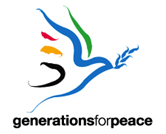Closer Cooperation Between Academics and Practitioners is Needed to Maximise Sport for Peace and Development Successes
October 8, 2013
The Generations For Peace Institute and Georgetown University have today released the results of a year-long international study which maps sport for peace and development initiatives around the world.
In the report, prostate the Georgetown research team, led by Dr Sarah Hillyer, identify organisations around the world who are using sport to build peace or to achieve development objectives. The research has found promising practices in the design, implementation and evaluation of sport for peace and development programmes, and suggests that strengthened links between academics and practitioners, and more investment in research programmes, would be beneficial.
The report provides a geographical and thematic mapping of the organisations, resources, and best practice in the field. The report provides one of the most comprehensive compilations of relevant literature to date and is a practical, usable resource for practitioners, educators, volunteers, donors, and others supporters of sport for peace and development activities.
Co-Founder and President of Generations For Peace, HRH Princess Sarah Al-Feisal said: “This research is a useful resource for the sport for peace and development community: from programme administrators and field practitioners, to volunteers and students. This mapping project is evidence that together, the Generations For Peace Institute and Georgetown University continue to be thought-leaders in the field of sport for peace and development.”
Craig Zelizer, Associate Director of the Master of Arts in the Conflict Resolution Program at Georgetown University’s Department of Government, said: “I am delighted to see that the work conducted by our fellow scholars, sponsored by the Generations For Peace Institute, will support the global sport for peace and development community. This is an essential study that provides a critical foundation for scholars and practitioners around the world that outlines the state of the field to date, discusses critical innovations, and concrete suggestions for improving research and practice. At Georgetown, we are continuing our commitment in the field with our postgraduate sport and peace-building course which is taught every year in partnership with the Generations For Peace Institute.”
Building on this mapping project, the Generations For Peace Institute has commissioned research into specific trends identified within the report, in particular to address shortcomings in programme monitoring and evaluation. To this end, the Institute is currently conducting longitudinal studies in Nigeria and the West Bank, alongside regular short-term evaluations. The results of these will further contribute to development of the field; supporting innovation, improvements to quality, impact and greater sustainability.
Later this year, the scholars from Georgetown University will be conducting field research with Generations For Peace programmes in the Balkans.


